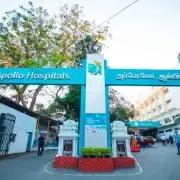Pre-Travel Medical Consultations with Indian Doctors
In This Article
Pre-Travel Medical Consultations with Indian Doctors
Elena
Updated on August 24, 2024
Medically verified by Dr. Arya
Fact checked by Dr. Fazeela

Medical Travel
10 min read
Planning a trip to India or any other destination is an exciting experience. However, to ensure a safe and healthy journey, it’s crucial to consider pre-travel medical consultations.
These consultations are essential in addressing potential health risks and ensuring that travelers are well-prepared for any medical challenges they might encounter.
Consulting with an Indian doctor before traveling to India can provide tailored advice relevant to the region’s specific health concerns, cultural practices, and available medical services.
Why Pre-Travel Medical Consultations Are Important
Traveling, especially to a different country, exposes you to various health risks. These could include infectious diseases, differences in climate, and food safety issues.
A pre-travel medical consultation is a preventive step to safeguard your health by assessing your medical history, vaccination status, and travel itinerary. This proactive approach helps identify and mitigate potential health risks, ensuring that you stay healthy during and after your trip.
Understanding the Role of Indian Doctors in Pre-Travel Consultations
Indian doctors bring a wealth of knowledge regarding the country’s specific health concerns.
They are familiar with the diseases prevalent in different regions of India, such as malaria, dengue fever, and typhoid, and can provide advice on preventive measures, such as vaccinations and medications.
Moreover, they can offer insights into the local healthcare system, guiding you on how to access medical services if needed.
What to Expect During a Pre-Travel Medical Consultation
A pre-travel medical consultation typically covers several key areas:
-
Health Assessment: The doctor will review your medical history, including any chronic conditions, allergies, or recent illnesses. This information helps them determine if you are fit to travel and identify any special precautions you might need to take.
-
Vaccinations: Depending on your travel itinerary, the doctor may recommend vaccinations for diseases such as hepatitis A and B, typhoid, cholera, and yellow fever. Some vaccinations may be required for entry into certain countries.
-
Medications: The doctor may prescribe medications for preventing or treating travel-related illnesses. For example, they may provide antimalarial tablets if you are traveling to a region where malaria is common.
-
Travel Advice: The doctor will offer guidance on how to stay healthy during your trip, including advice on food and water safety, avoiding insect bites, and managing health conditions in different climates.
-
Emergency Plan: The doctor will discuss what to do in case of a medical emergency while traveling. This may include how to access medical care in India, understanding your health insurance coverage, and having a list of emergency contacts.
 10 min Read
10 min ReadBooking Budget Friendly Accommodation Near Apollo Hospital, Greams Road
 10 min read
10 min readWhere can I exchange Bangladeshi Taka To Indian Rupees?
 10 min read
10 min readUnique Bangalore: Unusual & Intriguing Places to Explore While Staying In The City For Treatment
Get a Callback Now
Common Health Concerns When Traveling to India
India is a diverse country with varying climates, environments, and health risks. Some of the most common health concerns for travelers to India include:
-
Infectious Diseases: India has a high prevalence of infectious diseases such as malaria, dengue fever, and typhoid. Vaccinations and preventive medications are essential to protect against these diseases.
-
Food and Water Safety: Travelers should be cautious about food and water safety to avoid gastrointestinal issues such as traveler’s diarrhea. It’s advisable to drink bottled water and eat well-cooked food from reputable sources.
-
Air Quality: Air pollution is a significant concern in many Indian cities. Travelers with respiratory conditions should take precautions, such as wearing masks and avoiding outdoor activities during times of high pollution.
-
Heat-Related Illnesses: India’s climate can be extremely hot, especially during the summer months. Travelers should stay hydrated, wear light clothing, and avoid excessive sun exposure to prevent heat-related illnesses.
-
Altitude Sickness: If you plan to visit high-altitude regions, such as the Himalayas, be aware of the risk of altitude sickness. Acclimatization and proper preparation are key to avoiding this condition.
Choosing the Right Indian Doctor for Your Consultation
When seeking a pre-travel medical consultation, it’s important to choose a qualified and experienced doctor who understands the specific health risks associated with travel to India. Here are some tips for selecting the right doctor:
-
Credentials: Ensure that the doctor is licensed and has experience in travel medicine. They should be knowledgeable about the specific health risks in India and able to provide tailored advice.
-
Specialization: Some doctors specialize in travel medicine and are well-versed in the preventive measures required for travelers. Consider seeking out a specialist for your consultation.
-
Communication: Choose a doctor who communicates clearly and takes the time to answer your questions. They should be approachable and willing to discuss any concerns you may have.
-
Reputation: Look for reviews or recommendations from other travelers. A doctor with a good reputation for providing comprehensive and reliable pre-travel consultations is a good choice.
Preparing for Your Pre-Travel Medical Consultation
To get the most out of your pre-travel medical consultation, it’s important to come prepared. Here’s what you can do.
-
Research: Before your appointment, research your destination and be aware of any specific health risks. This will help you ask informed questions during your consultation.
-
Medical Records: Bring your medical records, including your vaccination history, list of current medications, and details of any chronic conditions. This information is crucial for the doctor to assess your health needs accurately.
-
Itinerary: Provide the doctor with a detailed itinerary of your trip, including the regions you will be visiting and the activities you plan to engage in. This will help them tailor their advice to your specific travel plans.
-
Questions: Prepare a list of questions or concerns you have about your health and safety during your trip. Don’t hesitate to ask for clarification if you don’t understand something.
A pre-travel medical consultation with an Indian doctor is an essential step in ensuring a safe and healthy trip to India.
These consultations provide valuable insights into the health risks associated with travel and offer personalized advice on how to stay healthy during your journey.
By choosing the right doctor, preparing for your consultation, and following the advice given, you can minimize health risks and enjoy your travels with peace of mind.
The information provided represents the views and opinions of Karetrip. It is crucial to conduct your own independent research before making any decisions regarding your healthcare journey. - Disclaimer
Pre-travel medical consultations are crucial for identifying and mitigating health risks associated with travel.
Indian doctors offer specialized knowledge of the country’s specific health concerns, making them ideal for consultations.
Consultations typically cover health assessments, vaccinations, medications, travel advice, and emergency planning.
Common health concerns in India include infectious diseases, food and water safety, air quality, heat-related illnesses, and altitude sickness.
Choosing a qualified and experienced doctor who specializes in travel medicine is important for a thorough consultation.
Preparation is key—research your destination, bring medical records, and provide a detailed itinerary to your doctor.
Vaccinations and preventive medications are essential for protecting against diseases like malaria and typhoid.
Understanding local healthcare systems and emergency procedures can provide peace of mind while traveling.
Travelers should be proactive in managing their health, especially when visiting regions with significant environmental challenges.
Following the advice of your doctor can help ensure a healthy and enjoyable trip to India.
Source Links
Mayo Clinic

